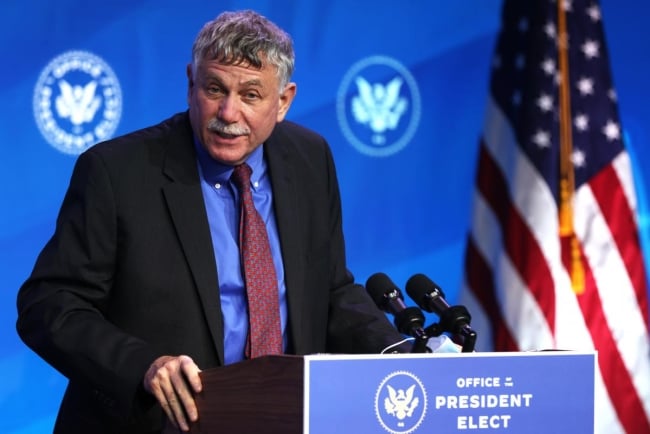You have /5 articles left.
Sign up for a free account or log in.

Eric Lander
Alex Wong/Getty Images
During his confirmation hearing, Eric Lander -- the nominee to lead the White House Office of Science and Technology Policy -- faced criticism from both Democratic and Republican lawmakers for his controversial past actions, ultimately admitting his mistake in understating the role of two female scientists in the discovery of CRISPR gene-editing technology.
Senator Tammy Duckworth, a Democrat from Illinois, said during her opening statement at the hearing last week that she was “troubled” by issues surrounding Lander’s nomination. The Senate Commerce, Science, and Transportation Committee reportedly delayed his confirmation hearing to allow for a “full and thorough review of Dr. Lander’s record and qualifications,” said committee ranking member Roger Wicker, a Republican from Mississippi.
“You have been criticized for downplaying the contributions of the female Nobel laureates I just mentioned, for toasting a well-known racist, misogynistic anti-Semite, and for attending lunch meetings with the late, disgraced Jeffrey Epstein,” Duckworth said.
Lander later admitted during the hearing that he understated the work of Jennifer Doudna and Emmanuelle Charpentier -- the 2020 winners of the Nobel Prize in chemistry -- in a paper he published in 2016 about the pioneers behind CRISPR, a technology that allows researchers to edit DNA sequences and modify genes.
“I made a mistake,” Lander said. “When I make a mistake, I own it and try to do better. I should’ve written those paragraphs differently to make my intention crystal clear.”
Lander also responded to concerns about his association with Epstein -- a prominent financier and sex offender, who died by suicide in jail in 2019 -- after Wicker pressed Lander to provide the committee with information regarding a meeting that Lander had with Epstein in 2012.
Lander responded that he met Epstein briefly at two events in the span of three weeks in 2012. The Broad Institute -- where Lander is founder and president -- never requested or received donations from Epstein or his foundation, he said.
“I chose to have no association whatsoever with him,” Lander said. “I did not know about his sordid history before that [meeting]. As soon as I learned about it, I had nothing to do with him thereafter.”
None of the senators asked additional questions about the 2018 toast Lander made to James Watson on his 90th birthday referenced by Duckworth in her opening comments. Watson, the co-discoverer of the double-helix shape of DNA, was known in his later life for his racist and sexist views, sparking outrage on Twitter that Lander would toast him. Lander apologized shortly after the incident.
Despite the critiques, much of the hearing was focused on Lander’s views on a range of science and technology-related issues, including climate change, cybersecurity and research. He noted that one of his first priorities as director would be to address the gender and diversity gaps that exist in STEM fields.
“We have to work with academia and industry to address power dynamics in academic labs and in corporate labs,” he said.
Lander’s nomination will have to be approved by the committee before the full Senate votes on his confirmation. If confirmed, his position will be elevated to a cabinet-level role, and he will be the last of President Biden’s cabinet nominees to complete the confirmation process.
Lander's nomination and Biden's elevation of the role to cabinet status were praised by the science community. Though some senators expressed their concerns during the hearing, none openly indicated they would oppose his confirmation.




